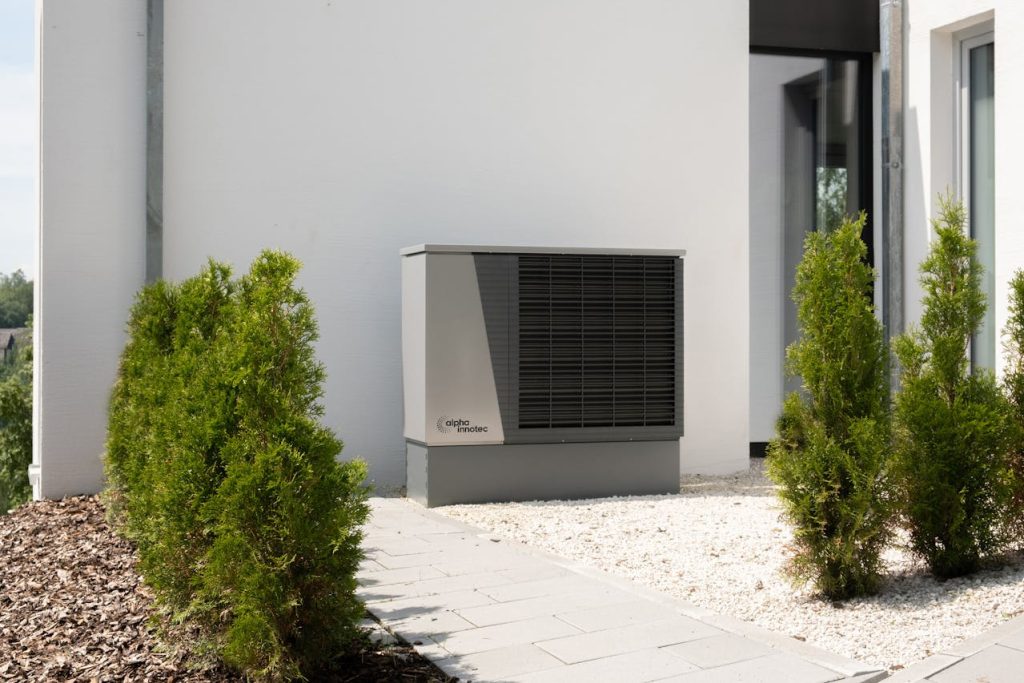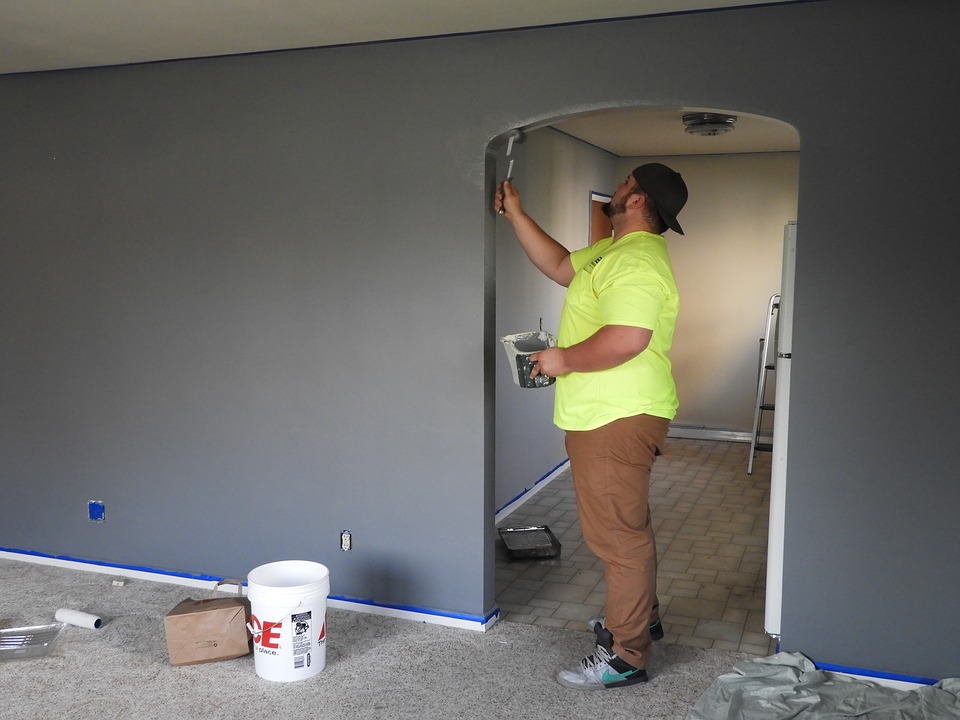Heat pumps are becoming an increasingly popular choice for homeowners looking to maintain a comfortable indoor environment while keeping energy costs low. Offering both heating and cooling capabilities, heat pumps are versatile and efficient systems that provide year-round climate control. Whether you’re considering installing a heat pump for the first time or need to address issues with an existing system, understanding the key aspects of heat pump installations and repairs is essential for making informed decisions.
What is a Heat Pump and How Does It Work?
A heat pump is a device that transfers heat between your home and the outside environment. Unlike traditional heating systems that generate heat by burning fuel, heat pumps use electricity to move heat from one place to another. In the winter, they extract heat from the outside air, ground, or water and transfer it indoors to warm your home. In the summer, the process is reversed, with heat being pulled from inside your home and released outside, effectively cooling your living space.
This ability to provide both heating and cooling makes heat pumps an energy-efficient alternative to furnaces and air conditioners. Depending on the model, heat pumps can draw heat from the air (air-source heat pumps), the ground (geothermal heat pumps), or a water source (water-source heat pumps). Each type has its own advantages, and the best choice depends on factors like climate, energy costs, and your home’s layout.
Factors to Consider Before Installing a Heat Pump
When planning to install a heat pump, there are several factors to take into account to ensure the system meets your needs. One of the first considerations is the climate in your area. While heat pumps are effective in moderate climates, they may require additional support from a supplemental heating system in regions with extremely cold winters. Newer models, however, are designed to operate efficiently in colder conditions, making them a viable option in a wider range of climates.
The size and layout of your home also play a critical role in determining the type and size of heat pump you’ll need. A system that’s too small will struggle to heat or cool your home effectively, while an oversized system can lead to short cycling, energy waste, and uneven temperature control. A professional HVAC technician will perform a load calculation to determine the appropriate size of the heat pump based on factors like square footage, insulation levels, and window placement.
Energy efficiency is another important factor to consider. Look for a heat pump with a high SEER (Seasonal Energy Efficiency Ratio) for cooling and a high HSPF (Heating Seasonal Performance Factor) for heating. While high-efficiency models may have a higher upfront cost, they can result in significant energy savings over the life of the system.
The Heat Pump Installation Process
Home heat pump service typically begins with an assessment of your home and existing HVAC system. If you’re replacing an old system, the technician will evaluate whether your current ductwork is compatible with the new heat pump. In some cases, ductwork may need to be modified or replaced to ensure optimal performance. For homes without ductwork, ductless mini-split heat pumps are an excellent alternative, as they provide efficient heating and cooling without the need for extensive renovations.
Once the system is selected, the technician will install the indoor and outdoor units, ensuring they are properly connected and aligned for maximum efficiency. Proper placement of the outdoor unit is crucial, as it needs adequate airflow and protection from debris or weather-related damage. After installation, the technician will test the system to ensure it is functioning correctly and provide guidance on operating and maintaining the heat pump.
Common Heat Pump Repairs and Maintenance Needs
Like any mechanical system, heat pumps require regular maintenance to operate efficiently and avoid breakdowns. One of the most common issues homeowners encounter is reduced airflow, which can result from dirty filters, blocked vents, or debris buildup in the outdoor unit. Regularly cleaning or replacing filters and ensuring the outdoor unit is clear of leaves and dirt can prevent these problems and improve system performance.
Another common issue is refrigerant leaks, which can cause the heat pump to lose its ability to transfer heat effectively. Low refrigerant levels not only reduce efficiency but can also damage the compressor if left unaddressed. A professional technician can locate and repair leaks, recharge the refrigerant, and ensure the system is operating as intended.
Electrical issues are another potential problem with heat pumps. Faulty wiring, worn-out capacitors, or malfunctioning sensors can prevent the system from running properly. These issues should always be handled by a trained technician to avoid safety hazards and further damage.
Icing is another concern, particularly in colder climates. While it’s normal for the outdoor unit to accumulate frost during the winter, excessive ice buildup can restrict airflow and damage the unit. Most heat pumps are equipped with a defrost cycle to address this issue, but if the defrost function isn’t working, it may indicate a problem with the thermostat, sensors, or control board.
Regular maintenance visits are essential for preventing these common issues and prolonging the life of your heat pump. During a maintenance visit, the technician will inspect and clean the system, check refrigerant levels, test electrical connections, and ensure all components are functioning properly. Investing in routine maintenance can save you money on repairs and keep your heat pump running smoothly year-round.
When to Replace Your Heat Pump
While regular maintenance and timely repairs can extend the life of your heat pump, there comes a point when replacement becomes the more cost-effective option. Most heat pumps have a lifespan of 10 to 15 years, depending on usage and maintenance. If your system is approaching or exceeding this age and requires frequent repairs, it may be time to consider upgrading to a newer, more efficient model.
Signs that your heat pump may need to be replaced include reduced heating and cooling performance, increasing energy bills, and unusual noises or odors coming from the system. Upgrading to a modern heat pump can provide better efficiency, improved comfort, and advanced features like smart thermostats and zoning capabilities.
Choosing the Right Professional for Installation and Repairs
When it comes to heat pump installations and repairs, choosing a qualified HVAC professional is essential. Look for a company with a proven track record, proper licensing, and certifications from industry organizations such as NATE (North American Technician Excellence). Reading customer reviews and asking for referrals can help you find a reliable technician who will provide quality service.
A good technician will take the time to assess your needs, explain your options, and answer any questions you have about the installation or repair process. They should also provide transparent pricing and a detailed estimate before beginning any work. Investing in a reputable HVAC professional ensures your heat pump is installed or repaired correctly and efficiently.
Final Words
Heat pumps are an excellent choice for energy-efficient heating and cooling, offering year-round comfort for your home. Whether you’re considering a new installation or need repairs for an existing system, understanding the factors that influence heat pump performance and maintenance is key. By choosing the right system for your home, scheduling regular maintenance, and working with a qualified professional, you can enjoy the benefits of a reliable and efficient heat pump for many years to come.



